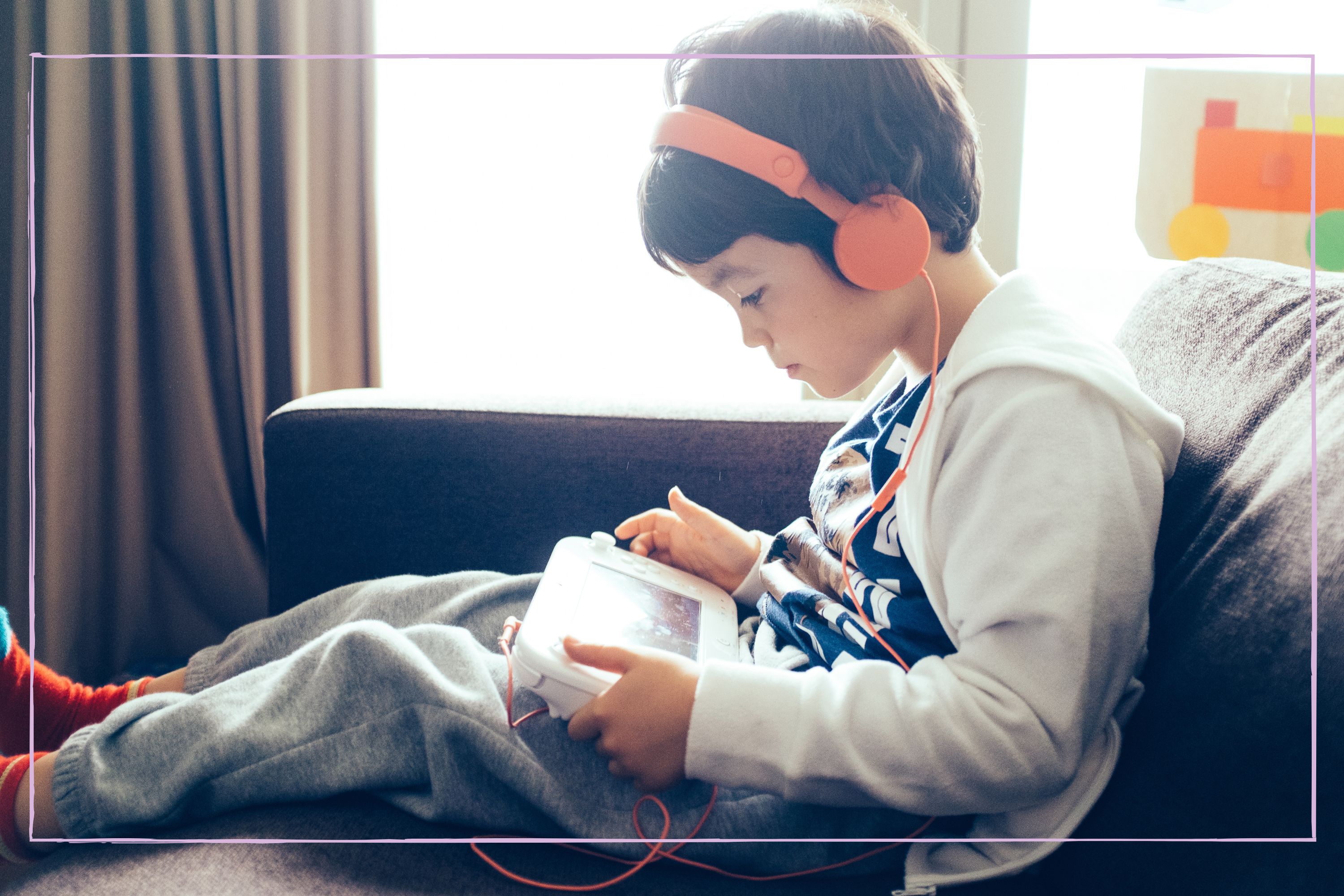
Children as young as six are at risk of gaming addictions - experts share three negative impacts on kids and how parents can help strike a balance.
Nowadays, TVs, tablets and phones are all an integral part of daily life - meaning they're a big part of our children's lives too. We know that, for many parents, allowing children a bit of screentime can sometimes be the only way to keep them occupied long enough for you to get the washing up done - and you shouldn't feel guilty about that.
Nevertheless, when it comes to gaming and social media there is growing concern among families about how to keep kids safe online - especially given recent research from Ofcom, which found that violent content is ‘unavoidable’ for children online.
Nicholas Conn, a leader in addiction research and the founder of Rehubs, which aims to dissect the relationship between children and video gaming, has revealed some of the hidden dangers for children online. Speaking about the allure of the virtual world - which is starting to attract children as young as six - Nicholas explained, "Video games offer an escape, a chance to live in a world where the rules are different, the challenges are surmountable, and the rewards are immediate.
"For children, this world is not just an escape but a canvas of imagination. However, this allure - if left unchecked - can lead to a disconnection from reality. The virtual world, with its high stimulation and interactive nature, can become more appealing than the real world, leading to a preference for the digital realm over physical activities and real-life social interactions."
We spoke to Nicholas and other experts to find out about the negative impacts that gaming can have on children's mental and physical wellbeing - and what parents can do to help.
1. Addiction
As an expert in addiction recovery, Nicholas has witnessed firsthand the addictive nature of video games. He says, "The structure of many games, with their levels, rewards, and achievements, taps into the brain's reward system. This can create a compulsion loop, compelling the player to engage in the game continuously."
He explains that for children, whose self-regulation skills are still developing, this risk is amplified. "The inability to disconnect can lead to behavioural changes, sleep disturbances, and a decline in academic performance," he goes on to say.
2. Social development
Nicholas acknowledges that while video games can offer a platform for social interaction, it's a double-edged sword. He warns, "Cyberbullying, exposure to inappropriate content, and online predation are real risks in the online gaming community. The anonymity and distance that the digital world offers can lead to behaviours and interactions that might be unacceptable in the real world."
He adds, "For children, who are still learning to navigate social contexts, these negative experiences can have profound impacts on their development and well-being."
3. Physical toll
The sedentary nature of gaming is a growing concern and can have a negative physical impact on people of all ages. Nicholas explains, "Long hours spent in front of screens can lead to a sedentary lifestyle, contributing to the rise of obesity, vision problems, and other physical health issues."
He adds, "The immediate gratification that video games offer can also lead to impulsive behaviour patterns, affecting a child's ability to engage in delayed gratification - a key skill for personal development."

What parents can do to help
Parenting expert at The Parenting Coach, Kaley Hayes, outlines a few steps parents can take to make sure their children develop healthier habits when it comes to the time they spend online. She says, “Parental controls and apps are vital to keeping children safe online, but they should not be relied upon as the only means. Having a great relationship with your child, mutual respect, and open communication are key."
She added, “Parents can also help their children develop critical thinking skills outside of the online world, which can be transferred to a wide range of life experiences, including those online. It is important to put their phone away when engaging with others face-to-face, eat meals together and value human connection, which can create deep fulfilment, over the online versions of our lives.”
Meanwhile, Nicholas suggested how parents can strike a balance. "While video games are a valuable part of our modern culture, it's essential to approach them with awareness and caution, especially when it comes to our children," he says.
"Balancing screen time with physical activities, fostering real-life social interactions, and monitoring the content are crucial steps in ensuring that the digital world remains a positive force in a child's life."
In other family news, research has shown two thirds of parents notice negative effects of screen time on their children and this is how long it takes for children to come across ‘unsafe, age-restricted and illegal content’ online. But we know many parents use screens to keep kids occupied - here are six reasons why you shouldn't feel guilty about screen time.







